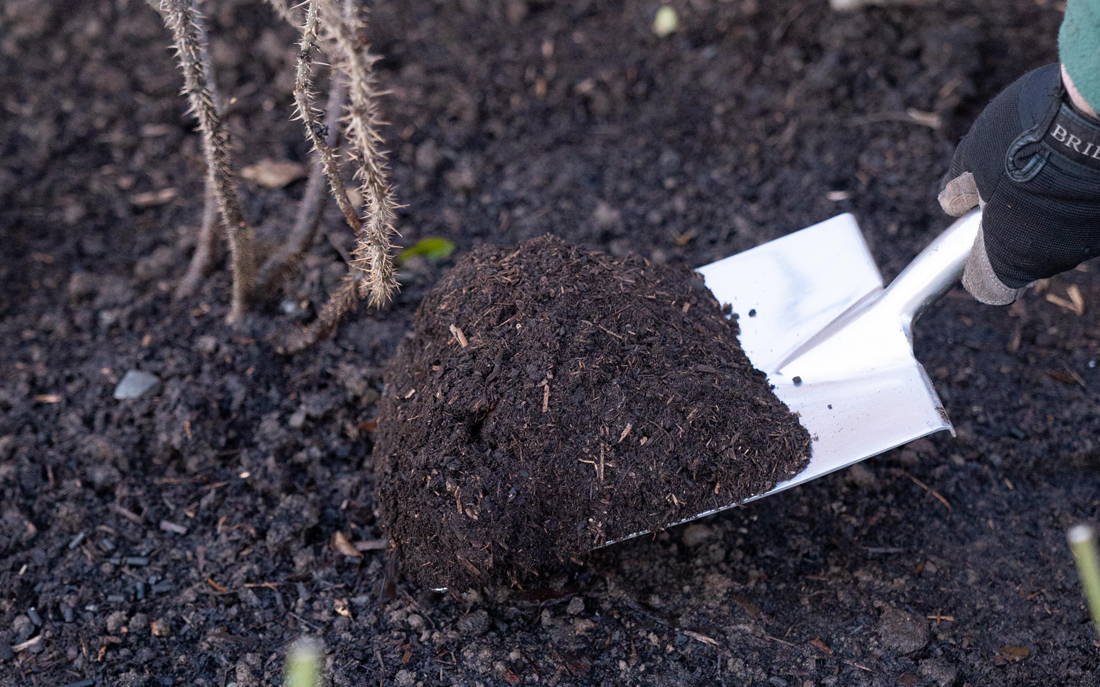Mulching roses is accomplished by placing a layer of organic material around the base of the plants, providing various benefits such as conserving moisture, suppressing weeds, and regulating soil temperature. To mulch roses properly, first, remove any existing weeds or debris from the area, then spread a layer of mulch around the rose bushes, keeping it a few inches away from the stems.
The mulch layer should be approximately 2-4 inches thick. Suitable materials for mulching roses include compost, wood chips, straw, or shredded leaves. Mulch should be replenished annually to maintain its effectiveness. By following these steps, you can effectively mulch roses to improve their overall health and growth.

Credit: www.davidaustinroses.com
Why Mulching Is Essential For Roses
Mulching is essential for roses due to its numerous benefits. One of the main advantages is that it helps retain moisture in the soil, providing a consistent water supply to the plants. Additionally, mulching assists in weed suppression, which reduces competition for nutrients and sunlight.
It also helps regulate soil temperature, protecting the roots from extreme heat or cold. When it comes to choosing the right mulch for roses, there are various options available. Organic mulches such as wood chips or straw provide additional nutrients to the soil as they break down.
Inorganic mulches like gravel or pebbles offer a neat and low-maintenance option. Factors to consider when mulching roses include the thickness of the mulch layer, avoiding contact with the base of the plant, and applying mulch in a ring shape around the plant.
Mulching roses is a simple yet effective way to promote healthy growth and vibrant blooms.
Step-By-Step Guide To Mulching Roses
Mulching roses is a crucial step in their care and maintenance. When preparing the soil for mulching, it’s important to remove any weeds or debris. Choosing the right mulch is essential, as organic options like wood chips or shredded leaves work best for roses.
Applying the mulch around the base of the roses helps retain moisture and control weeds. When mulching, make sure not to pile the mulch against the roses’ stems to prevent rot. Proper mulching techniques involve spreading a layer of mulch around two to three inches thick.
It’s important to avoid compacting the mulch and allow for proper airflow. Additionally, there are some dos and don’ts to keep in mind, such as avoiding synthetic mulches and excessive mulching depth. Mulching young rose plants promotes healthy root development.
Finally, annual mulching for established roses helps maintain soil moisture and temperature consistency.
Maintenance And Troubleshooting
Maintaining mulched roses is essential for optimal performance. Proper watering is crucial, ensuring a consistent schedule. Weed control is also important in beds with mulched roses, preventing competition for nutrients. To avoid diseases and pests, thorough preventive measures should be taken.
Replenishing mulch regularly helps retain moisture and provides insulation. However, there are some common issues to be aware of when mulching roses, such as over-mulching. Signs of over-mulching include suffocating the roots and stunting growth. Lastly, dealing with mulch decomposition is key to ensure its effectiveness.
Regular inspection and replacement will help maintain a healthy and thriving rose garden. By adhering to these maintenance and troubleshooting tips, your mulched roses will flourish beautifully.
Frequently Asked Questions Of How To Mulch Roses
What Is The Best Way To Mulch Roses?
For the best way to mulch roses, spread a layer of organic mulch about 2-3 inches thick around the base of the plants.
Should You Put Mulch Around Roses?
Yes, it is recommended to apply mulch around roses for better moisture retention, weed control, and temperature regulation.
What Is The Best Mulch For Rose Bushes?
The best mulch for rose bushes is organic matter like shredded bark or compost.
What Is The Best Way To Mulch Roses For Winter?
To mulch roses for winter, spread a layer of organic mulch around the base, keeping it within 2-3 inches. This helps insulate and protect the plants from extreme temperatures.
Conclusion
Mulching roses is essential for their health and longevity. By applying a layer of organic mulch around the base of the plants, you can provide numerous benefits. Firstly, mulch helps to retain moisture in the soil, ensuring that roses receive adequate hydration throughout the growing season.
This is especially important during hot summer months. Additionally, mulch acts as a barrier, preventing weed growth and reducing the competition for nutrients. It also helps to maintain a consistent soil temperature, protecting the roots from extreme heat or cold.
Furthermore, mulching adds organic matter to the soil as it breaks down, enhancing its fertility and promoting beneficial microbial activity. Overall, mulching is a simple yet effective technique that can greatly improve the health and beauty of your rose garden.
So grab your mulch and get ready to give your roses the love and care they deserve!

